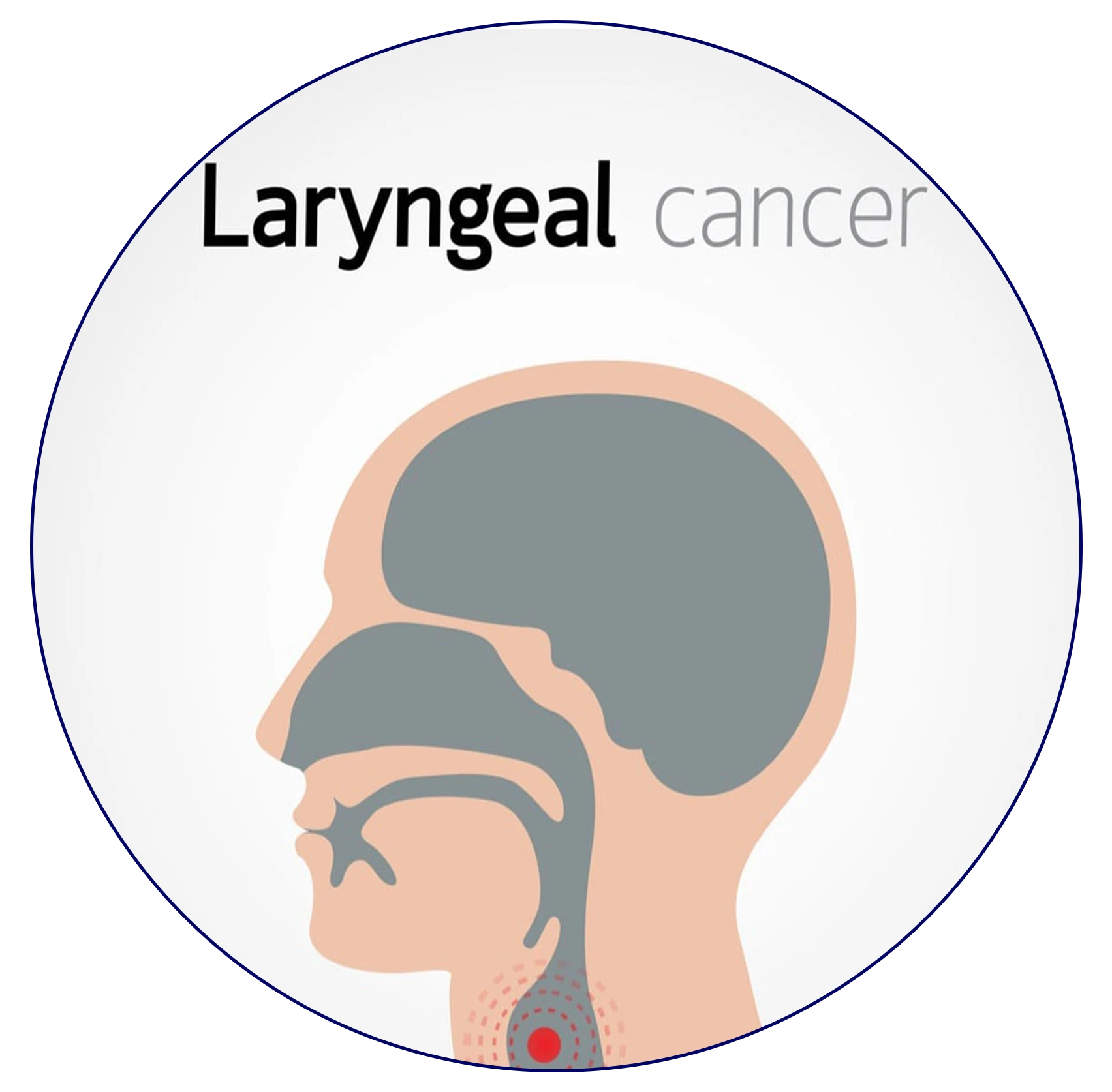Laryngeal Cancer
Laryngeal Cancer
Laryngeal disease is the malignant growth of the larynx, part of the throat. Disease happens when explicit cells develop wildly. As the cells duplicate, they attack and harm the body. In laryngeal disease, these harmful (threatening) cells start in the larynx (voice box). Specialists need to have the foggiest idea of what causes malignant laryngeal growth. Yet, if you have risk factors, such as tobacco or liquor use, you have a higher possibility of creating malignant laryngeal growth. A few types of HPV (human papillomavirus), a physically communicated contamination, can cause malignant laryngeal growth.

What are the symptoms of laryngeal cancer?
The confusing side effects of malignant laryngeal growth with different conditions are simple. Assuming you experience these side effects, converse with your medical care supplier for a precise determination:
- Sore throat or cough that doesn’t go away.
- Voice change, such as hoarseness, that doesn’t improve after two weeks.
- Pain or other difficulties when you swallow.
- Lump in the neck or throat.
- Dysphonia, trouble making voice sounds.
- Ear pain.
How is laryngeal cancer diagnosed?
Some portion of the analysis is arranging the malignant growth. Your consideration group will sort out how serious the illness is — how far the change has developed and if and where it has attacked the body. The laryngeal disease can, at times, attack the thyroid, throat, tongue, lungs, liver, and bones. Phases of malignant laryngeal growth include:
Early laryngeal cancer: In stages 0, 1, and 2, the growth is negligible. The disease has not spread past the larynx.
Advanced laryngeal cancer: In stages 3 and 4, the growth has become more prominent. It’s impacted the vocal lines or attacked the lymph hubs or different regions of the body.
How do I know if I’m at risk?
On the off chance, you have any gamble factors for malignant laryngeal growth — for instance, assuming you smoke or had head and neck disease previously — converse with your medical care supplier. They can assist you with doing whatever it may take to bring down your gamble of creating malignant growth.
